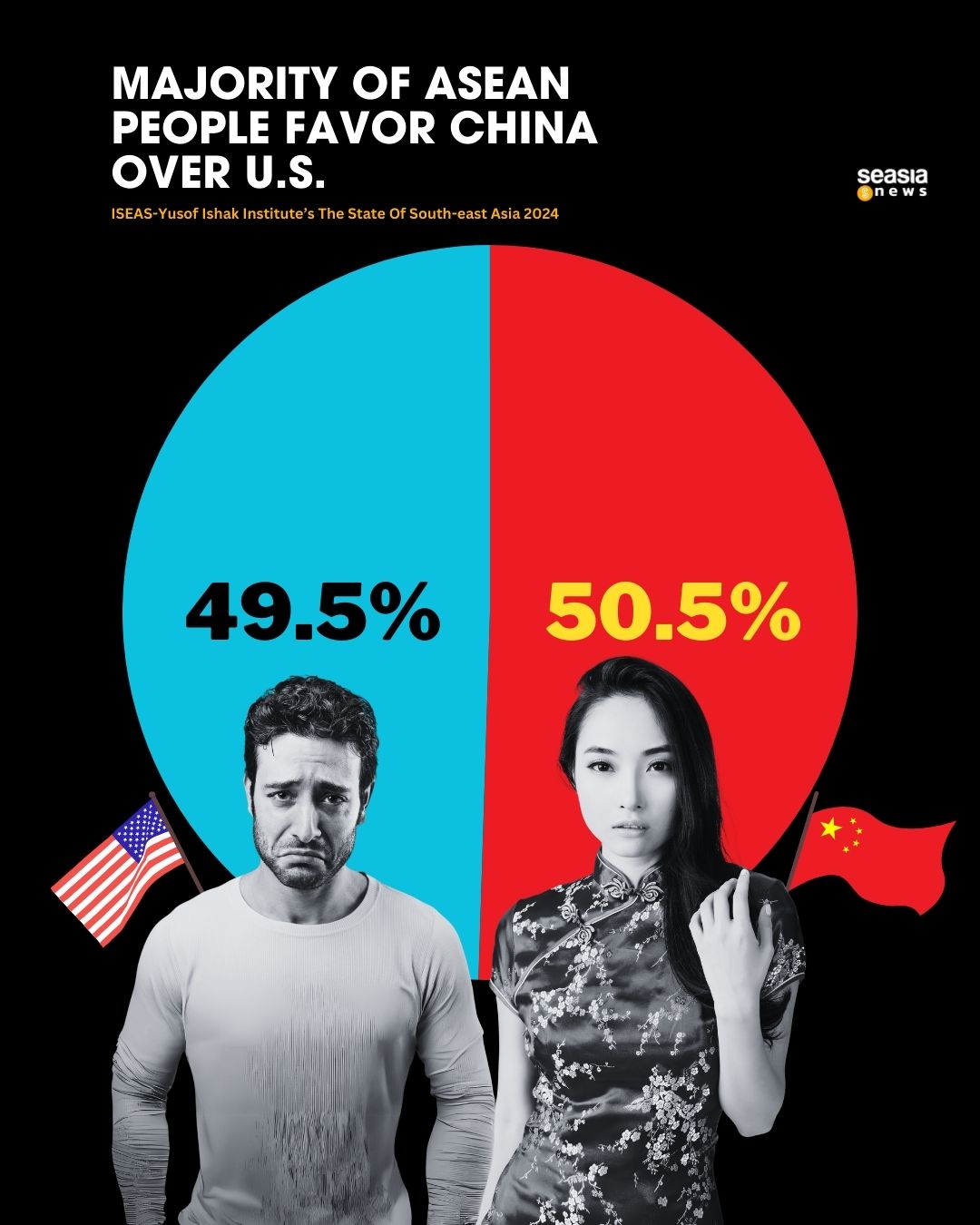The ISEAS – Yusof Ishak Institute’s The State Of South-east Asia 2024 report, published on April 2, 2024, reveals a significant shift in sentiments among respondents from the region. If forced to choose between the two major powers, China edges out the United States as South-east Asia’s preferred superpower by a narrow margin. Among the 1,994 respondents polled across the 10 Asean nations, 50.5 per cent indicated China as their preferred choice, while 49.5 per cent selected the US. This is a notable change from the 2023 survey, where only 38.9 per cent of respondents picked China, with 61.1 per cent opting for the US.
The 2024 survey was conducted online from Jan 3 to Feb 23 and polled respondents from academia, think-tanks, research groups, businesses, civil society, the media, and regional or international organizations, as well as governments. Respondents could take the survey in one of six language options: English, Bahasa Indonesia, Burmese, Khmer, Thai, and Vietnamese. In the 2024 survey, China continues to be seen as the most influential economic power in South-east Asia, followed by Asean and the US. China was perceived as the most influential political and strategic power in the region, followed by the US. The Asean nations’ perception of the bloc’s political and strategic influence is also on the rise, according to the survey.
Despite the positive perceptions about China, concerns about its growing regional political and strategic influence persist, with 73.5 per cent of respondents expressing unease, up from 68.5 per cent in 2023. Confidence in the US has also waned, with nearly 60 per cent of respondents concerned about its growing strategic and political influence in the region, up from over 40 per cent in 2023. The waning confidence in the US could be attributed partly to the escalating rivalry between China and the US.
While more respondents indicated trust towards the US than distrust, the findings show a significant drop in trust from more than half of the respondents in 2023. This could be a sign that South-east Asia could be treading cautiously ahead of the US presidential election in November. The eligibility criteria for the 2024 survey were tightened compared to previous years. Respondents were screened based on various criteria such as nationality, age, affiliation, education, general knowledge of Asean, and level of interest in current affairs. This could have influenced the shift in sentiments observed in the survey results.
The annual survey, first conducted in 2019, aims to present a snapshot of the prevailing attitudes among people in a position to inform or influence policy on regional issues. The change in South-east Asia’s preference towards China could potentially impact future policies and relations within the region. There were exceptions to the general trend of waning confidence in the US. Respondents from the Philippines, Singapore, and Vietnam perceived US influence more positively. This suggests that sentiments towards the major powers can vary significantly between different countries in South-east Asia.




















